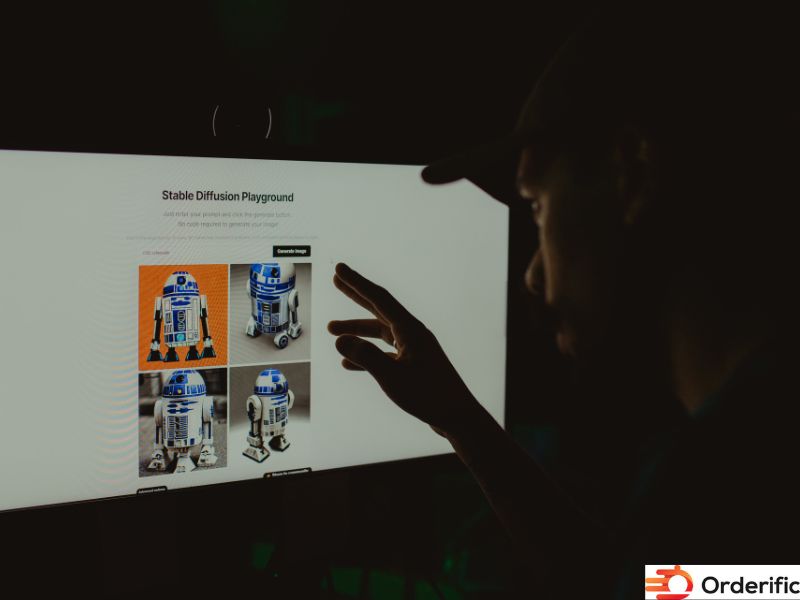Introduction
Event planning is an intricate process requiring meticulous event management for optimal success. Real-time data analytics and tools are revolutionizing the dynamics of this realm. Event organizers now have the power to harness event data for insightful analytics, fostering enhanced engagement among attendees and honing the efficiency of event tracking. Equipped with these real-time monitoring tools, an event planner can significantly amplify the event’s impact, whether it’s a virtual event or a physical gathering. It’s all about making strategic decisions based on user behavior and streaming data, leading to a more immersive and interactive experience for everyone involved. Harnessing the power of Google Analytics, Adobe Analytics, and event stream processing, the future of event planning is now data-driven and real-time.
What Are Collaboration Tools?
Collaboration tools are integral to event management and are designed to streamline the event planning process. Event organizers can coordinate tasks and communicate essential details in real time with these tools. This real-time data exchange fosters heightened engagement among attendees and event organizers, enhancing the overall event success.
These tools often incorporate event analytics through platforms like Google Analytics and Adobe Analytics. Analyzing event data offers invaluable insight into user behavior, aiding in more precise event tracking. This data-driven approach allows event planners to create a more engaging, attendee-focused experience, whether a physical gathering or a virtual event.
Integrating event-driven architecture with these tools further enhances their effectiveness, offering real-time monitoring capabilities. This allows for instant adjustments based on streaming data, ensuring seamless event management. Event stream processing, for instance, can provide real-time updates about the event, enabling better decision-making and ultimately improving the attendee experience.
In essence, collaboration tools harness the power of data and analytics to facilitate efficient event management. From real-time data exchange to event tracking, these tools play a critical role in propelling event planning into the future.
Benefits Of Using Collaboration Tools For Event Planning
- Enhanced Engagement: Collaboration tools foster active participation among attendees, thus increasing engagement levels. They allow real-time data exchange, which keeps attendees informed and involved, creating a dynamic event experience.
- Efficient Event Management: Event management becomes far more streamlined with these tools. They enable real-time monitoring, which allows event organizers to make instant adjustments based on streaming data, resulting in efficient event management and enhanced event success.
- Precise Event Tracking: Through tools like Google Analytics and Adobe Analytics, event planners can gather and analyze event data for more precise tracking. Understanding user behavior in real-time lets planners tailor the event experience to the attendees’ preferences.
- Data-Driven Decisions: With real-time access to data, decisions become more strategic and effective. Event analytics offer insights about attendee behavior, empowering event planners to create more engaging experiences.
- Improved Communication: Collaboration tools facilitate seamless communication, enhancing coordination among event organizers. This results in a well-managed event, whether it’s a physical gathering or a virtual event.
- Real-Time Updates: Event stream processing provides real-time updates about the event, enabling better decision making that can greatly improve the attendee experience.
In conclusion, the integration of collaboration tools in event management bolsters engagement, enhances tracking, and promotes data-driven decision making. These tools, driven by analytics, are revolutionizing event planning, making it more interactive, efficient, and tailored to attendee preferences.
Top 10 Collaboration Tools Designed For Event Planners

1. Airtable
Airtable truly shines as a collaboration tool designed explicitly with event planners in mind. With its cloud-based collaboration service, Airtable offers unparalleled flexibility and customization options essential for effective event management. From seamless task assignments to seamless scheduling and comprehensive budget tracking to efficient vendor management, Airtable serves multiple purposes and caters to every aspect of event planning. Its intuitive and easy-to-use spreadsheet-like interface empowers event organizers to maintain, update, and share information effortlessly in real time, ensuring everyone stays on the same page. Moreover, Airtable’s seamless integration with other popular apps like Google Calendar and Slack further enhances its value and provides a seamless workflow experience.
By emphasizing real-time data exchange, Airtable significantly heightens engagement levels and improves communication among the event team, fostering a collaborative environment that drives success. With its exceptional real-time updates and data-driven management capacity, Airtable undoubtedly streamlines event planning, making it more efficient, interactive, and, ultimately, more successful.
2. Asana
Asana is undeniably another powerful tool that has revolutionized the world of event management. Its exceptional project management capabilities are second to none, empowering event planners to effortlessly assign tasks, meticulously track progress, and effectively manage deadlines. What sets Asana apart is its unparalleled level of customization, perfectly catering to the unique needs and requirements of each and every event. One of its standout features is its remarkable visualization tools, allowing teams to effortlessly map out their workflow and gain a comprehensive understanding of their progress at just a glance. This real-time overview streamlines event management and enhances team engagement through clear and concise communication.
With Asana, event teams can rest assured that no detail will be overlooked and that all tasks will be completed promptly and efficiently. The tool’s seamless integration with other popular apps like Google Calendar, Slack, and Adobe Creative Cloud makes it an incredibly versatile addition to any event planner’s toolkit. In essence, Asana harnesses the power of real-time data and effective project management to facilitate a genuinely seamless and exceptional event planning experience, creating an engaging and enriching atmosphere for all attendees.
By utilizing Asana, event planners can elevate their event management game, ensuring that every aspect of the planning process is executed flawlessly, resulting in an extraordinary event.
3. Bit.ai
Bit.ai revolutionizes event planning by introducing a whole new level of collaboration and efficiency. As an all-in-one solution, Bit.ai provides a robust platform for real-time collaboration, seamless document tracking, and efficient content management. It is specifically designed to facilitate the effortless sharing of vital information, creative ideas, and delegated tasks between event organizers, ultimately amplifying engagement and effectiveness to unprecedented levels.
One of Bit.ai’s standout features is its brilliant editor, which empowers planners to create dynamic documents enriched with multimedia content. With the ability to seamlessly incorporate videos, images, and weblinks, event planners can curate an interactive experience that captivates attendees’ attention and encourages active participation. Furthermore, its seamless integration with popular tools like Google Sheets, Slides, and social media platforms highlights the platform’s remarkable versatility. This ensures that event planners have access to a wide array of resources, creating a truly comprehensive and adaptable solution for event planning.
Bit.ai encapsulates the essence of effective event management – real-time collaboration, enhanced engagement, and data-driven decision-making. It streamlines the planning process and guarantees a more enriching and engaging event experience. With Bit.ai, event planners can confidently orchestrate remarkable events that leave a lasting impression on attendees.
4. Brief
Brief is a cutting-edge tool that revolutionizes event planning, bringing unparalleled efficiency and clarity to the process. This powerful collaboration tool excels in facilitating real-time communication, a critical aspect in successfully managing events of any scale. With Brief, event organizers can create dedicated spaces tailored to different tasks, allowing for enhanced organization and ensuring that every detail is meticulously addressed.
One of the standout features of Brief is its simplicity and intuitiveness. By eliminating clutter and promoting clarity, this tool enables teams to stay focused on their responsibilities and work seamlessly together. With its user-friendly interface, Brief allows for effortless task assignments, progress tracking, and seamless file sharing, all within a straightforward and easy-to-navigate platform.
Notably, Brief goes beyond the basics by integrating seamlessly with other popular services like Google Drive. This integration amplifies its usefulness, providing event planners with a comprehensive suite of tools to streamline their workflows and enhance collaboration.
In essence, Brief is more than just a tool – it is a game-changer for event planners. By simplifying processes, promoting engagement, and ensuring a well-coordinated event, Brief empowers planners to deliver exceptional experiences that leave a lasting impact on attendees.
5. Chanty
Chanty stands out as an incredibly intuitive and AI-powered team chat tool that revolutionizes communication in event planning. With its user-friendly interface and powerful features, it fosters an environment of real-time collaboration, enhancing engagement and productivity among event organizers.
This tool provides a platform for open discussions, private messages, and even audio and video calls, ensuring seamless and efficient communication. The smart AI technology integrated into Chanty serves as a virtual assistant, organizing and prioritizing tasks based on their importance and deadlines. This ensures that event planners can stay on top of their to-do lists and never miss a critical deadline.
What sets Chanty apart is its seamless integration with popular services like Google Drive and Dropbox. This allows for easy file sharing and collaboration, eliminating the need to switch between multiple applications. Event planners can effortlessly share important documents, collaborate in real-time, and keep everyone on the same page.
Moreover, Chanty goes beyond just communication and file sharing. Its robust task management feature enables event planners to assign tasks, track progress, and even set reminders. This ensures a streamlined planning process and successful event execution. Event planners can easily delegate responsibilities, monitor progress, and receive notifications to stay organized and ensure nothing falls through the cracks.
In summary, Chanty is not just a team chat tool, but a comprehensive solution for event management. With its focus on enhancing engagement, improving communication, and streamlining task management, it has become an invaluable tool in the arsenal of any event planner.
6. Dropbox
Dropbox is an indispensable tool that plays a crucial role in elevating the efficiency of event planning. Renowned for its robust cloud storage capabilities, it provides a secure and reliable platform for easy access and sharing of crucial files, documents, and data in real-time. This leads to seamless communication and collaboration among the event management team, enabling them to work together harmoniously towards a successful event.
With its simple and intuitive interface, Dropbox makes it effortless to organize files in folders, ensuring that everything is neatly structured and easily accessible. The sophisticated search feature allows users to quickly find specific information, saving valuable time and increasing productivity. Moreover, Dropbox’s real-time update feature ensures that all team members are constantly synchronized and up-to-date with the latest changes, eliminating any confusion or miscommunication.
What sets Dropbox apart is its seamless integration with other productivity apps like Google Workspace and Microsoft Office. This comprehensive nature allows for a seamless workflow, enabling event planners to leverage the full potential of these tools and enhance their productivity even further.
In addition to its file storage capabilities, Dropbox serves as a catalyst for effective team collaboration. Furthermore, By providing a centralized platform for sharing ideas, feedback, and updates, it fosters a collaborative environment where everyone can contribute their expertise and insights. So, This, in turn, leads to the smooth execution of tasks and ensures that all aspects of event management are meticulously planned and executed.
In conclusion, Dropbox goes beyond being a simple file storage solution. It empowers event planners with the tools they need to work efficiently, communicate effectively, and execute tasks seamlessly. With its comprehensive features, seamless integration, and commitment to collaboration, Dropbox is an invaluable asset in the realm of event management.
7. Evernote
Evernote stands as a game-changer in the arena of event planning, revolutionizing the way organizers manage and execute events. With its dynamic platform for note-taking and task management, Evernote offers a comprehensive solution that goes beyond traditional methods. Its user-friendly interface, combined with its powerful features, allows for easy organization and collaboration, enhancing productivity in real-time.
One of the standout features of Evernote is its versatility in capturing and storing information in various formats. Whether it’s text, images, audio, or video files, Evernote makes it straightforward to capture and store critical data, ensuring it is readily accessible whenever needed. What sets Evernote apart is its remarkable ability to search for text within images, making it a valuable asset when it comes to managing visual content for events.
8. Google Drive
Google Drive stands as an indispensable tool in the realm of event planning. Its robust cloud storage capabilities provide a reliable platform for the event management team to share and access crucial files and documents in real-time. Furthermore, With its user-friendly interface, Google Drive makes organization effortless, ensuring all files are neatly structured and easily accessible. Its powerful search feature enables users to find specific information with ease, saving valuable time and enhancing productivity. Hence, With the added advantage of real-time updates, Google Drive ensures all team members are consistently synchronized, eliminating confusion or miscommunication. The tool’s seamless integration with other productivity apps like Google Workspace and Microsoft Office further elevates its worth, creating a streamlined workflow for event planners. Beyond its file storage capabilities, Google Drive serves as a platform for effective team collaboration, fostering an environment where everyone can contribute their expertise and insights.
So, This leads to meticulous planning and execution of all aspects of event management. In essence, Google Drive proves to be more than a simple file storage solution; it’s a comprehensive tool empowering event planners to work efficiently, communicate effectively, and successfully execute their tasks.
9. GoToMeeting
GoToMeeting is a powerful tool that amplifies the efficiency of event planning through virtual collaboration. Furthermore, It offers HD video conferencing, facilitating seamless communication among event organizers in real-time. So, With features like screen sharing and recording, GoToMeeting ensures that all team members stay in the loop. Hence, Its easy-to-use interface combined with integration capabilities with apps like Outlook and Google Calendar, makes it an indispensable tool in the event planning process.
10. MindMeister
MindMeister serves as an innovative tool that transforms event planning through its interactive mind mapping features. By visually projecting ideas, tasks, and timelines, it enhances clarity and facilitates smooth coordination among event organizers. Its real-time collaboration capabilities foster engagement, while its integration with MeisterTask ensures seamless task management. In essence, MindMeister is not merely a planning tool but a platform to stimulate creativity, promote engagement, and ensure meticulous execution of events.
Conclusion
In conclusion, the realm of event planning has been transformed by the advent of innovative tools like Orderific that foster collaboration, streamline workflows, enhance engagement, and ensure meticulous execution of tasks. Furthermore, From facilitating real-time communication to providing secure cloud storage, these tools have become indispensable in the arsenal of any event planner. They not only streamline the planning process but also guarantee a superior and engaging event experience for attendees. Thus, the future of event planning lies in harnessing the power of these advanced tools to orchestrate remarkable events that leave a lasting impression.
So, See these tools in action by scheduling a demo with Orderific. Hence, Experience firsthand how you can revolutionize your event planning process and create unforgettable experiences for your attendees.
FAQs
What role do real-time tools play in enhancing the overall event experience?
Real-time tools foster engagement, streamline processes, and elevate the attendee experience.
How can event organizers integrate and leverage real-time tools effectively?
Event organizers can integrate and use real-time tools effectively by understanding their features, tailoring them to their specific needs, and training their team to use them efficiently.
Are there specific types of events that benefit more from the use of real-time tools?
Real-time tools can significantly enhance all types of events, from small meetings to large conferences.
What features should one look for in selecting real-time tools for event management?
When selecting real-time tools for event management, look for features such as ease-of-use, real-time collaboration, integration with other software, and robust task management features.
How do real-time tools contribute to attendee engagement and interaction during events?
Real-time tools foster interactions, prompt feedback, and immersive experiences, significantly enhancing attendee engagement during events.













